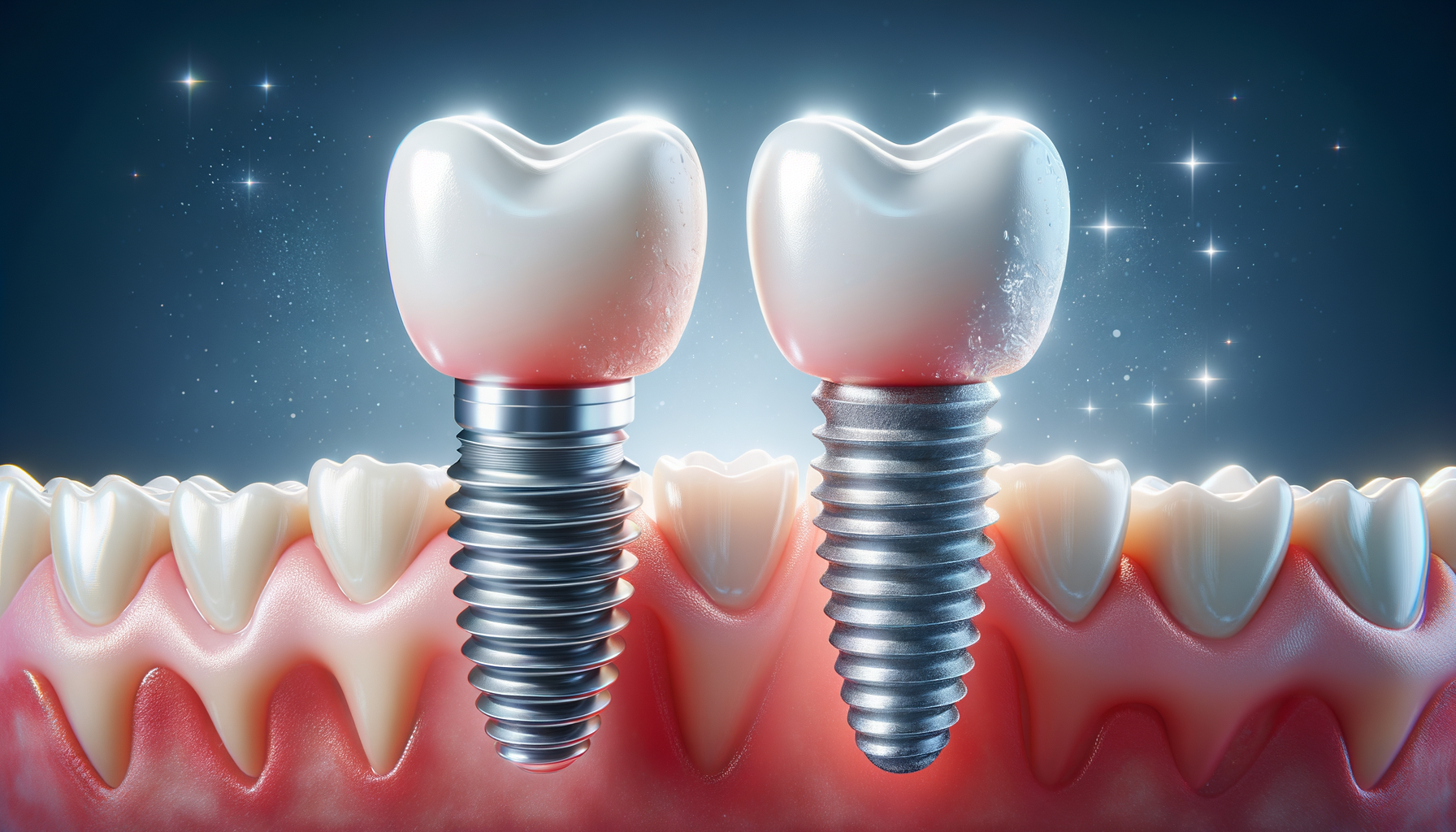Understanding Dental Implants
Dental implants are a revolutionary solution for those looking to replace missing teeth. Unlike traditional dentures or bridges, dental implants are designed to mimic the structure of a natural tooth. This involves a titanium post that serves as a root, which is surgically placed into the jawbone. Over time, this post fuses with the bone through a process called osseointegration, providing a stable foundation for the artificial tooth.
One of the most significant advantages of dental implants is their durability. With proper care, they can last a lifetime, making them a cost-effective solution in the long run. Additionally, they help preserve jawbone health, preventing the bone loss that often accompanies missing teeth.
Dental implants are not one-size-fits-all. There are several types, including endosteal (placed in the bone) and subperiosteal (placed on the bone), each catering to different needs and conditions. Patients can choose between single tooth implants, implant-supported bridges, or even full arch replacements.
The Process of Tooth Replacement with Implants
The journey to a restored smile with dental implants involves several stages. Initially, a thorough consultation and examination are conducted to assess the patient’s oral health and determine the suitability of implants. This includes imaging tests like X-rays or CT scans to evaluate bone density and structure.
Once deemed suitable, the implant placement surgery is scheduled. This procedure is typically performed under local anesthesia, making it relatively painless. After the surgery, a healing period of several months is required for osseointegration to occur. During this time, the jawbone grows around the implant, securing it firmly in place.
After successful integration, an abutment is attached to the implant, serving as a connector for the crown. Finally, a custom-made crown is placed, designed to match the color and shape of the surrounding teeth, ensuring a natural appearance.
The entire process may take several months, but the results are well worth the wait. Patients can enjoy restored functionality, improved aesthetics, and enhanced self-confidence.
Benefits of Smile Restoration with Dental Implants
Smile restoration through dental implants offers numerous benefits beyond mere aesthetics. Firstly, implants provide stability, allowing patients to eat, speak, and smile with confidence. Unlike dentures, which can slip or cause discomfort, implants are securely anchored, eliminating these issues.
Moreover, dental implants contribute to overall oral health. They prevent the shifting of adjacent teeth, maintaining proper alignment and bite. By preserving the jawbone, they also help maintain facial structure, preventing the sunken appearance that can result from bone loss.
Another critical advantage is the psychological impact. A restored smile can significantly boost self-esteem and improve social interactions. Patients often report feeling more confident in personal and professional settings, leading to a better quality of life.
In addition to these benefits, dental implants are easy to care for. Regular brushing, flossing, and dental check-ups are all that’s needed to maintain them, making them a convenient option for long-term oral health.
Comparing Dental Implants with Other Tooth Replacement Options
When considering tooth replacement options, it’s essential to compare dental implants with other available choices, such as dentures and bridges. Each option has its advantages and limitations, and understanding these can help make an informed decision.
Dentures are removable appliances that replace missing teeth. While they are more affordable upfront, they require regular maintenance and adjustments. They can also be less comfortable, as they may slip or cause irritation. Additionally, dentures do not address bone loss, which can lead to changes in facial structure over time.
Bridges, on the other hand, are fixed prosthetics that rely on adjacent teeth for support. While they offer more stability than dentures, they require the alteration of healthy teeth, which can compromise their integrity. Bridges also have a shorter lifespan compared to implants.
In contrast, dental implants offer a more permanent solution. They do not affect surrounding teeth and provide superior stability and comfort. Although the initial investment is higher, the longevity and benefits of implants often outweigh the costs, making them a preferred choice for many.
Is Dental Implant Treatment Right for You?
Determining whether dental implants are the right choice involves several considerations. Factors such as oral health, bone density, and overall health play a crucial role in the decision-making process. A consultation with a dental professional is essential to evaluate these aspects and discuss potential risks and benefits.
Ideal candidates for dental implants are those with good oral hygiene, sufficient bone density, and no underlying health conditions that could affect healing. However, even if bone loss has occurred, procedures like bone grafting can prepare the site for implants.
It’s also important to consider lifestyle and personal preferences. Patients seeking a long-term, low-maintenance solution often find implants appealing. However, those with budget constraints or who prefer less invasive options might explore alternatives like dentures or bridges.
Ultimately, the decision is personal and should be made after careful consideration and professional guidance. With the right choice, dental implants can transform your smile and improve your quality of life.




Leave a Reply